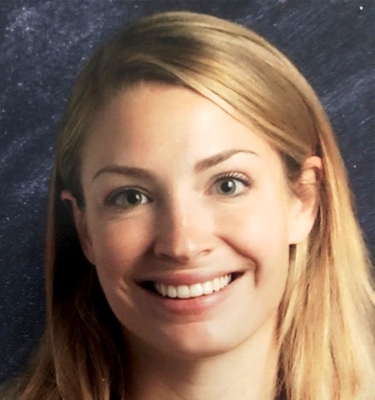Obtaining an addictions certificate can be beneficial for aspiring counselors and working professionals alike.

An addictions counseling certificate program is an opportunity to develop specialized skills and knowledge in the field of substance abuse disorders. Many individuals who earn their addictions certificate find themselves working in an industry that helps others, which is rewarding for many.
Editorial Listing ShortCode:
If you have a knack for building trusting relationships and have a passion for helping those in need, earning a certificate in addiction and substance abuse may be the next step in your career journey.
Online Addictions Certificate Programs

Obtaining an addictions certificate can be a strategic way to build your knowledge and skills in a specific area of counseling. It may also help you stand out as an expert in your field. Addictions counseling certificate programs include both undergraduate and graduate programs.
Select the program that most interests you to jump to that section of the guide:
Regardless of the specialty you select, you will still receive a strong foundation in addictions counseling and related courses.
Undergraduate Certificate in Addictions Counseling

An undergraduate certificate in addictions counseling can help prepare you to counsel clients with substance abuse issues.
No prior degree is needed to apply for this type of certificate program. Although the number of credits required to complete an addictions counseling undergraduate certificate varies, programs typically consist of 20 credit hours. In addition to academic courses, students are sometimes expected to complete a practicum, generally consisting of at least 200 hours.
Editorial Listing ShortCode:
While curricula differs between certificate programs, students usually study case management, individual counseling, physiology of substance abuse, and law and ethics. These courses should help prepare you for work as an addictions counselor.
At the end of the program, students can be certified to counsel individuals facing drug and alcohol abuse and dependency issues. Licensing requirements do vary by state, though, so it’s beneficial to check the specific guidelines for your state of residence.
Graduate Certificate in Addictions Counseling

A graduate certificate in addiction counseling program is open to licensed professionals who hold their bachelor’s, master’s, or doctoral degree in a counseling-related field. Related fields include mental health counseling, marriage and family therapy, and social work. For professionals wishing to branch into marriage and family therapy, a number of universities offer online marriage and family therapy programs that provide this credential.
The purpose of earning this certificate is to become an expert in substance abuse counseling and be able to provide top-level service to clients facing these issues. You’ll likely study the physiological and pharmacological impacts of different substances as well as strengthen the skills needed to diagnose substance abuse disorders.
Editorial Listing ShortCode:
Curriculum for graduate certificates in addictions counseling typically include about 4 to 6 courses. Specific course offerings vary between programs, but you might expect to study addiction treatment planning, relapse prevention, assessment and diagnosis, and individual and group counseling.
Many individuals who earn their graduate certificate in addictions counseling are already mid-career, licensed professionals. Earning a certificate is a strategic way to build skills and learn how to better help clients as they tackle addiction.
Addiction Studies Careers & Salaries
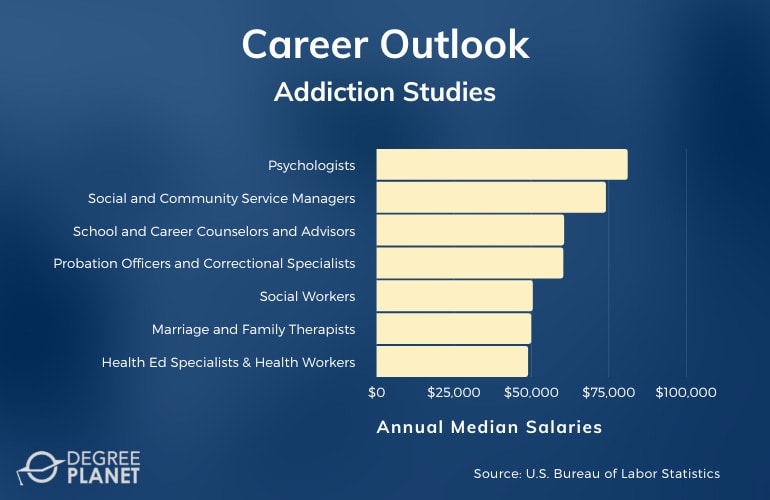
Studying addiction counseling can lead to a fulfilling career helping others in need. Many addiction counselors positively impact the lives of their clients, working to help diagnose and treat those facing substance abuse and other addiction issues.
According to the Bureau of Labor Statistics, people who obtain an addiction counseling certificate often go on to become professionals in the following roles.
| Careers | Annual Median Salaries |
| Psychologists | $81,040 |
| Social and Community Service Managers | $74,000 |
| School and Career Counselors and Advisors | $60,510 |
| Probation Officers and Correctional Treatment Specialists | $60,250 |
| Social Workers | $50,390 |
| Marriage and Family Therapists | $49,880 |
| Health Education Specialists and Community Health Workers | $48,860 |
| Substance Abuse, Behavioral Disorder, and Mental Health Counselors | $48,520 |
| Rehabilitation Counselors | $38,560 |
| Social and Human Service Assistants | $37,610 |
Whether you are a working professional or just getting started in the counseling field, there are plenty of opportunities for growth and advancement with an addictions counseling certificate. Although obtaining a certification can certainly help you develop new skills and build on old ones, it does not guarantee a specific professional title or salary.
Editorial Listing ShortCode:
When making hiring decisions, many employers will consider your level of education, prior work experience, current licenses, and demonstrated skills and abilities.
Addiction Counseling Certificate’s Curriculum & Courses

Coursework will vary between addiction counseling certificate programs, especially depending on whether the certificate is an undergraduate- or graduate-level program. Here are examples of courses you may come across:
- Assessment and Diagnosis: In this class, you’ll learn the tools and techniques needed to assess and diagnose various substance abuse disorders.
- Comorbidity in Substance Use: This course explores different comorbidities with substance abuse disorders, including how to recognize and treat commonly occurring comorbidities .
- Individual Addiction Counseling: Focusing on a range of counseling approaches, this course teaches best practices for working with clients from diverse backgrounds.
- Group and Family Addiction Counseling: This class provides students with an understanding of various theories and models of group counseling as well as how to lead and evaluate group sessions.
- Counseling Methods: This course serves as an introduction to fundamental counseling techniques, including reflection, feedback, and basic solution skills.
- Physiology of Substance Abuse: In this course, you’ll learn about different drugs and their impacts on the human body as well as the role of the brain in addiction and recovery.
- Case Management: You’ll study the foundations of case management, covering topics such as treatment planning, referrals, and client assessment.
- Substance Use Disorder Law and Ethics: In this class, you’ll study the code of ethics used in substance abuse counseling, and you’ll explore common ethical dilemmas and questions in counseling.
- Relapse Prevention: You’ll learn to recognize early signs of relapse and develop a plan to address or prevent a relapse event in the future.
- Psychology: By studying topics like learning, social behavior, and personality, you can develop a firm foundation in the basic theories and principles of psychology.
Because certificate programs require the completion of fewer credits than degree programs, you will likely only take between 4 and 6 courses.
Admissions Requirements

Admissions requirements for addiction counseling certificate programs vary between schools. You may also be required to submit different materials depending on whether you are applying for an undergraduate or graduate certificate program.
Undergraduate admissions requirements:
- SAT or ACT scores (if required)
- Official high school transcripts
- Letters of recommendation
- Personal statement
Graduate admissions requirements:
- GRE or GMAT scores (if required)
- Official undergraduate transcripts
- Letters of recommendation
- Resume
While there are overlapping requirements for undergraduate and graduate certificate programs, how you approach these items may change at each level. For example, if you are a working professional applying for a graduate certificate program, you might reach out to coworkers or supervisors for your letters of recommendation.
If you are working toward an undergraduate certificate, your letters of recommendation might be from former teachers, mentors, or coaches.
Addiction Certificate Programs Accreditation

As you begin your search for addiction certificate programs, it is strategic to limit your choices to programs from regionally accredited schools.
Editorial Listing ShortCode:
The accreditation review process compares existing curriculum, facilities, and teaching staff to a set of standards for quality. Potential employers also tend to put more trust in credentials that were earned at accredited institutions. In addition, if you would like to be eligible for federal financial aid, it is necessary to enroll in an accredited school.
Financial Aid and Scholarships

To apply for federal aid and determine your eligibility for other need-based aid, you can complete the Free Application for Federal Student Aid (FAFSA).
This form will calculate how much monetary aid you can receive by factoring in items like your family’s income and assets. The financial aid you are awarded may come in the form of a grant, student loan, or work-study opportunity. Applying for scholarships is another way to relieve some of the costs of attending college. Most schools offer scholarships in different areas, such as academics, sports, or community service.
What Can You Do with an Addictions Counseling Certificate?

Pursuing an addictions counseling certificate is a strategic way to begin your counseling career or to strengthen and develop skills to employ in your current practice.
Many working professionals use an addictions counseling certificate as a way to gain knowledge and tools specific to substance abuse disorders and treatments. Mental health counselors, social workers, and public health professionals are all prime candidates for a graduate certificate in addictions counseling.
Many people who obtain a counseling certificate go on to pursue careers as substance abuse, behavioral disorder, or mental health counselors. Others choose to become rehabilitation counselors.
What Qualifications Do You Need to Be an Addiction Counselor?

An addictions counselor is an individual who has completed the necessary education and has a strong desire to help others.
Qualifications needed to become a certified addiction counselor include:
- Earning a degree from an accredited college or university
- Completing a supervised internship or practicum
- Passing a felony and child abuse background check
- Passing a state licensing exam
Licensed addictions counselors in private practice are required to hold a masters in addiction counseling online or on campus, but those outside of private practice do not always need to hold a specific degree, depending on the state. At a growing number of universities, students can earn an online masters in counseling no GRE scores required. While an undergraduate or graduate certificate can certainly be helpful in beginning or supplementing a career as a certified addictions counselor, it is not a requirement.
How Long Does It Take to Get an Addiction Studies Certificate Online?
Online addiction studies certificate programs vary in length. A typical undergraduate certificate program, though, involves between 4 and 6 courses, generally taking about 6 months to complete.
Graduate certificate programs generally consist of 3 to 6 courses and can consist of 15 to 20 credits. Some certificate programs also require you to complete a certain number of supervised clinical hours, which can add time to the overall length of a program.
Is an Addictions Certificate Worth It?

Yes, an addictions certificate is worth it for many students. Professionals with the skills and tools of a substance abuse counselor often have the opportunity to make a lasting positive impact in the lives of individuals and communities.
Editorial Listing ShortCode:
Plus, according to the Bureau of Labor Statistics, many careers related to addiction counseling have employment growth rates higher than the national average. Substance abuse, behavioral disorder, and mental health counselors, for instance, have a projected job growth rate of 23% over the next ten years.
Universities Offering Online Certificate in Addiction Counseling Program
Methodology: The following school list is in alphabetical order. To be included, a college or university must be regionally accredited and offer degree programs online or in a hybrid format.

Alder University offers a certificate in substance abuse counseling that can be earned as a stand-alone, 12 credit certificate or added to another online program as a 16 credit certificate. After completing coursework in the relevant theories, functions, and treatments of substance abuse, students are asked to apply their knowledge in a specialized practicum experience.
Adler University is accredited by the Higher Learning Commission.

Bethel University offers an addiction studies certificate program. It is intended for individuals currently completing undergraduate or graduate studies in human services, psychology, social work, nursing, or therapy. This entirely online program can potentially be completed in just 8 months. Graduates of the program can pursue a wide range of entry-level positions in the drug and alcohol treatment field.
Bethel University is accredited by the Southern Association of Colleges and Schools Commission on Colleges.

Century College offers an addiction counseling certificate program. It aims to prepare students for state licensure examinations and provide them with specialized knowledge in addiction treatment to complement their existing education and skillsets. This 27 credit program is designed to be added to a previously completed bachelor’s degree.
Century College is accredited by the Higher Learning Commission.

Jamestown Community College offers an addictions counseling certificate program. It is designed for students interested in joining the high-demand fields of social work and counseling and other human services careers. The program consists of 35 total credit hours and utilizes a hybrid model of 75% online coursework and 25% on-campus class attendance, fieldwork, and internships.
Jamestown Community College is accredited by the Middle States Commission on Higher Education.

Loma Linda University offers a drug and alcohol counseling certificate program. It aims to prepare students for careers counseling individuals with substance use disorders and the pursuit of further certifications from many national substance abuse treatment organizations.
The program can be completed fully online. Full-time students can typically complete the 13 credits and 200 hours of supervised clinical fieldwork required to graduate in just 1 year.
Loma Linda University is accredited by the Western Association of Schools and Colleges.

Mount Wachusett Community College offers a certificate in substance abuse counseling. Those with patience, communication skills, confidence, self-motivation, and the ability to listen without judgement may excel in the role of drug abuse counselor. Upon completion of the certificate program, most graduates can easily proceed to an associate degree program in human services.
MWCC is accredited by the New England Commission of Higher Education.

The certificate program in addiction counseling at Northeastern Illinois University is designed to empower students to pursue fulfilling work in the field of substance abuse counseling.
Students can choose to complete the 21 credit curriculum through synchronous virtual attendance or asynchronous online learning. No matter which format is chosen, the program culminates in a specialized clinical practicum requirement, which must be completed in-person.
Northeastern Illinois University is accredited by the Higher Learning Commission.
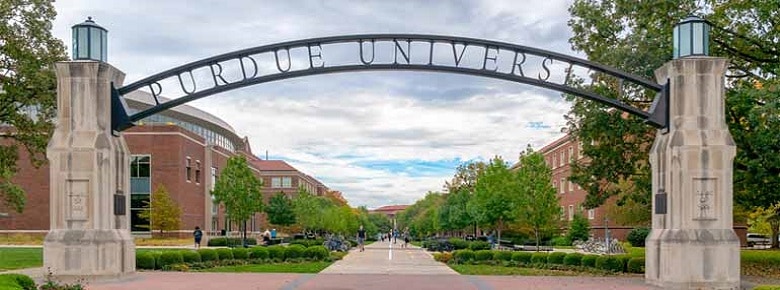
Purdue University offers a certificate program in addictions. It aims to imbue students with the skills needed to succeed in a variety of counseling environments, including hospitals, mental health clinics, and behavioral health and detox centers. Students typically need to devote 15 to 18 hours per week to their studies during each 10 week term. The 27 required credits can typically be completed in one year.
Purdue University is accredited by The Higher Learning Commission of the North Central Association of Colleges and Schools.

Seton Hill University offers a certificate program in addictions and substance abuse. The curriculum covers how to identify and communicate personal and systemic causes of addiction, assess treatments, and develop intervention plans. The program’s fully online nature is designed to help ensure flexibility for all students.
Seton Hill University is accredited by the Middle States Commission on Higher Education.

Waynesburg University offers a 12 credit, online certificate program in addictions counseling. It is designed as a post-baccalaureate program for individuals currently in the counseling field.
It builds on students’ existing expertise and education with the intent to prepare them for more advance roles related to substance abuse and addiction treatment. Courses cover topics such as pharmacology, counseling techniques, and family counseling in addiction.
Waynesburg University is accredited by the Middle States Commission on Higher Education.
Universities Offering Online Graduate Certificate in Addiction Counseling Program
Methodology: The following school list is in alphabetical order. To be included, a college or university must be regionally accredited and offer degree programs online or in a hybrid format.
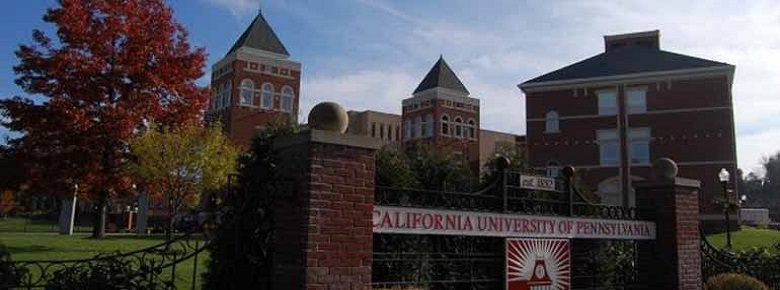
California University of Pennsylvania offers a certificate program in addictive disorders counseling. The curriculum covers issues in substance addiction, addiction and families, and gambling addiction.
The program can be taken entirely online over the course of 15 weeks in the summer semester. This often makes it an ideal option for already practicing counselors seeking specialized instruction in the treatment of addiction and abuse.
California University of Pennsylvania is accredited by the Middle States Commission on Higher Education.
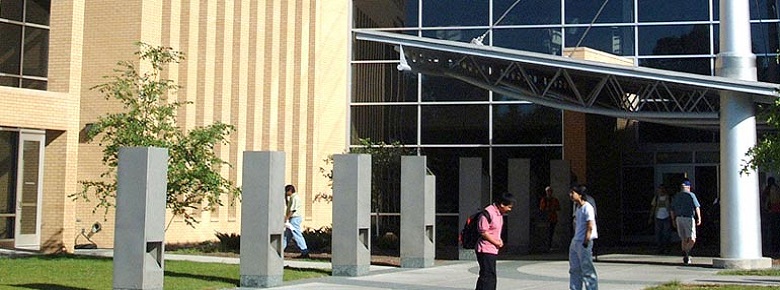
St. Cloud State University’s certificate in addictions is a popular choice for individuals pursuing careers in mental health, college, or rehabilitation counseling. Classes are offered on campus and online. Upon completion of the program, students can take the Minnesota License Alcohol and Drug exam or apply the credits from their certificate to a qualifying master’s degree in counseling.
St. Cloud State University is accredited by the Higher Learning Commission.

The University of Florida offers a certificate in addiction and recovery. The program requires the completion of 18 credit hours.
Students may progress at their own speed, and new students are admitted year-round. The curriculum is designed to provide a comprehensive education in substance abuse treatment. Topics covered include the neurobiology of addiction, assessment and treatment plans, financing programs, and professional ethics.
The University of Florida is accredited by the Southern Association of Colleges and Schools Commission on Colleges.
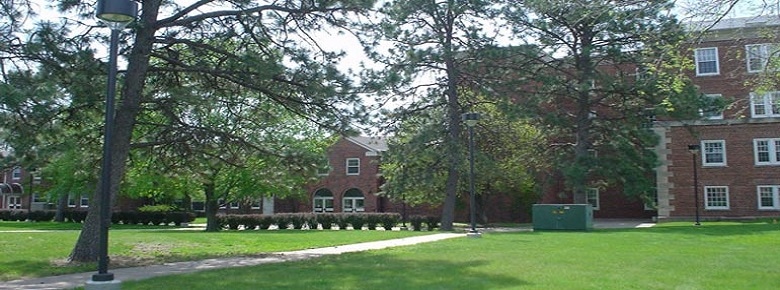
The University of Nebraska—Kearney offers an online certificate in alcohol and drug counseling. With the epidemic of alcohol and drug abuse growing, the program seeks to graduate competent and informed professionals who can rise to meet that need. Core courses include Clinical Treatment Issues, Assessment and Case-Planning, and Medical and Psychosocial Aspects of Addiction.
UNK is accredited by the Higher Learning Commission.
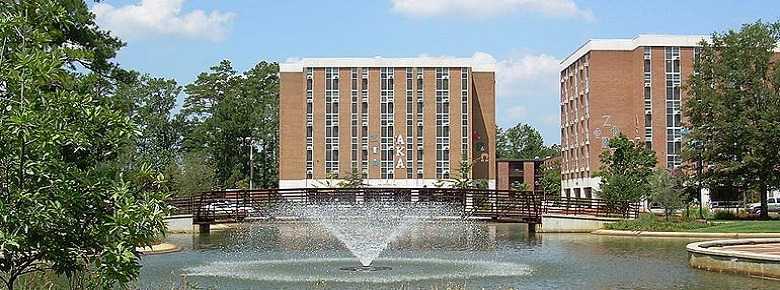
The University of North Carolina—Pembroke offers a graduate certificate in addictions counseling. It is designed for students interested in careers in counseling, leadership, and advocacy. The curriculum includes four classes for a total of 12 credit hours, all of which can be completed entirely online.
The University of North Carolina at Pembroke is accredited by the Southern Association of Colleges and Schools Commission on Colleges.
Getting Your Addictions Certificate Online

Earning your addictions certificate online can be a strategic way to build your understanding of substance abuse disorders, diagnoses, and treatment.
An undergraduate or graduate certificate can help you learn new skills or strengthen existing ones to better help your clients. It could also demonstrate your abilities and skill sets to potential employers in the field.
You can begin this next step in your educational journey today by exploring undergraduate or graduate certificate programs from accredited schools. Finding the right addictions certificate program for you may depend on your previous schooling as well as your career goals.

